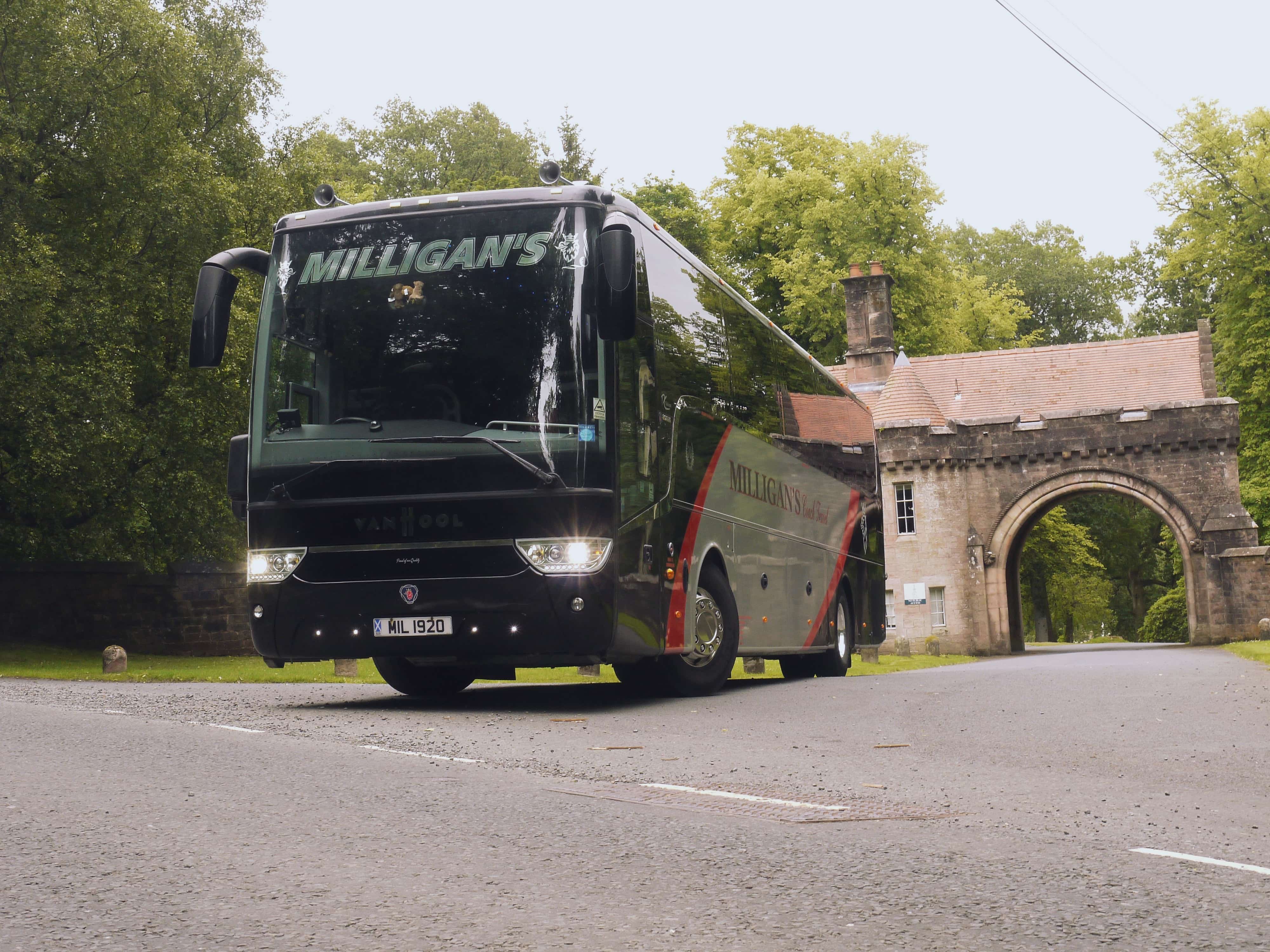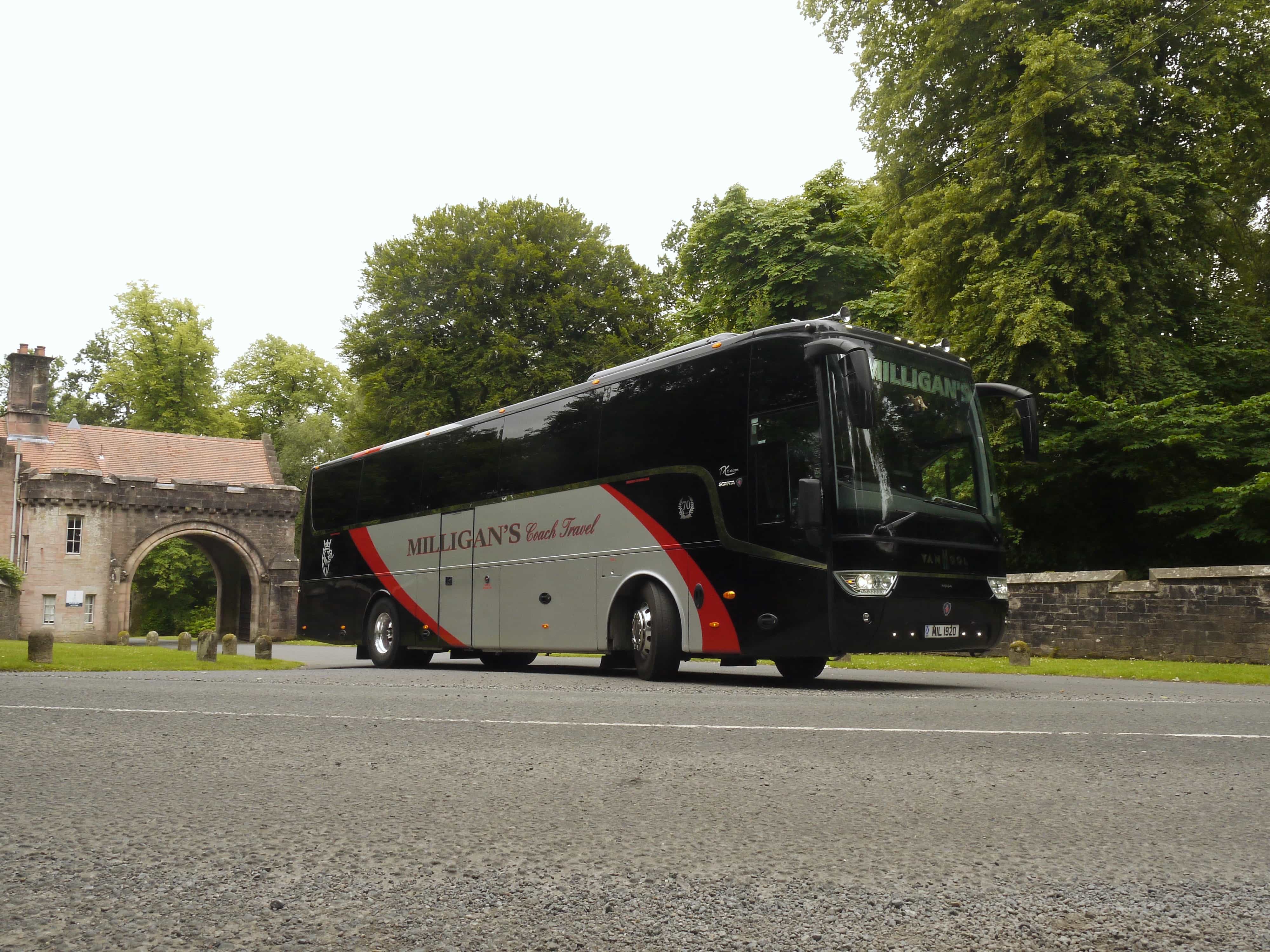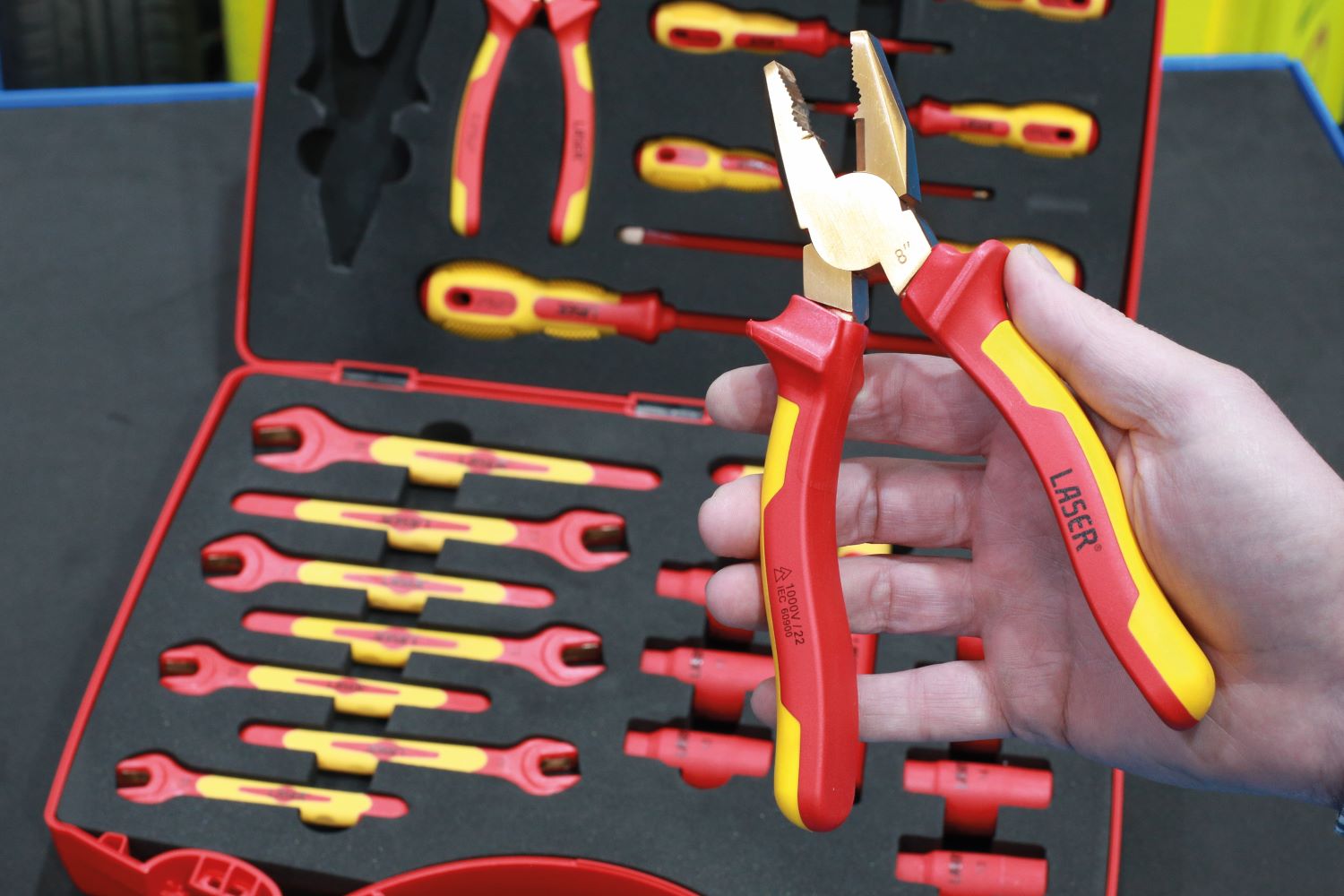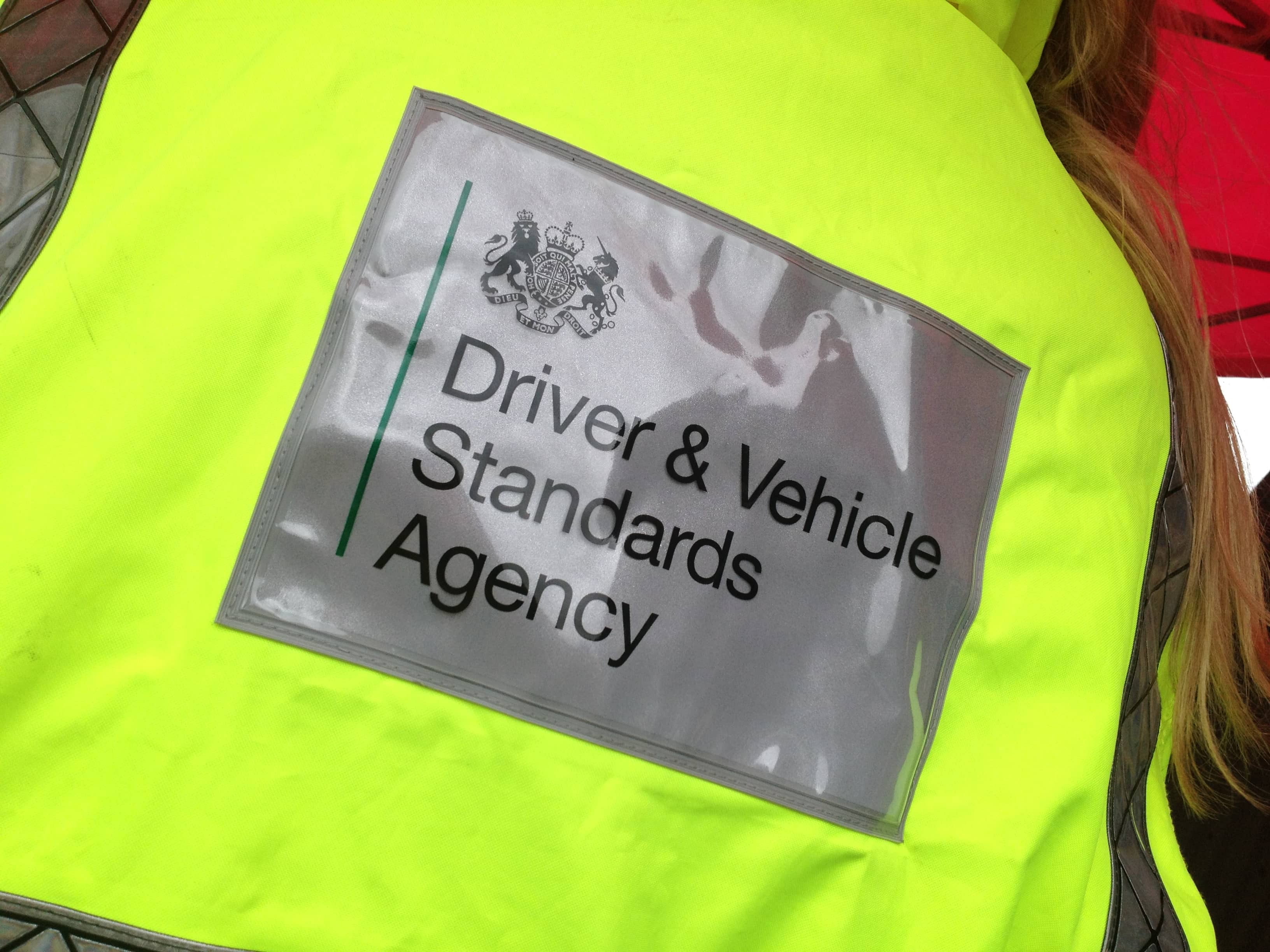Prudence and tenacity have been the driving forces behind Milligan’s Coach Travel. Soon, it’s up to the next generation of leadership to continue the journey
For three quarters of a century, Milligan’s Coach Travel has been a constant in its hometown of Mauchline, Ayrshire.
Founded by father-and-son team George and William Milligan in 1948, much of the company’s longevity can be put down to careful financial management and a tenacity to overcome any obstacle it faces. That attitude has been passed down generation to generation.
For the last few decades, Billy – William’s son – and wife Morag have been at the helm of the company. Before long, it’s expected that the baton will be passed to 25-year-old daughter Lynsey, who confesses she had “counted down the days” to when she, too, could join the family business, right behind brother Robbie.
As the company marks its 75th anniversary, routeone paid a visit to delve into the journey of Milligan’s and of the prudence and grit that has carried a business forward through three generations.
 A family legacy
A family legacy
Billy is a man of few words, but Morag believes he would be proud to say he has kept the business going for his father and grandfather. George, a retired miner, started the business with William as a taxi firm, their first coach being a Bedford OB. “Billy always tried to please them,” says Morag. “He worked hard to show them that he, too, could do what they did.”
There was no shortage of friction in those years between Billy’s parents. William’s full life was the business, resulting in conflict with wife Betty. That is perhaps best demonstrated by one story in which money saved for an engagement ring once went on a tyre. “She was very bitter towards it. She actually hated the coaches – they controlled so much of our lives. She couldn’t understand how I wanted to come in and join it. But being 75 today is a great achievement for William,” Morag adds.
It’s been almost 20 years since William passed. For the family now, hitting 75 years is an achievement on his behalf, knowing he could not reap the full benefits of it during his own life. “We have more luxuries now,” says Morag. “There was a lot more competition back then. It was always work. Everything earned was reinvested. It was like that for us in the beginning and it’s just recently changed.”
The turning point was a decant of Mauchline primary school in 2007, which increased its coach hire requirements. That doubled the price of a typical school contract for Milligan’s. Five coaches took pupils to different schools while their own was closed for refurbishment. That contract ran for two years. “That’s when we got decent money,” says Morag. “Until then, for years, everything we made got swallowed up with the business – everything we made, we put back in.”
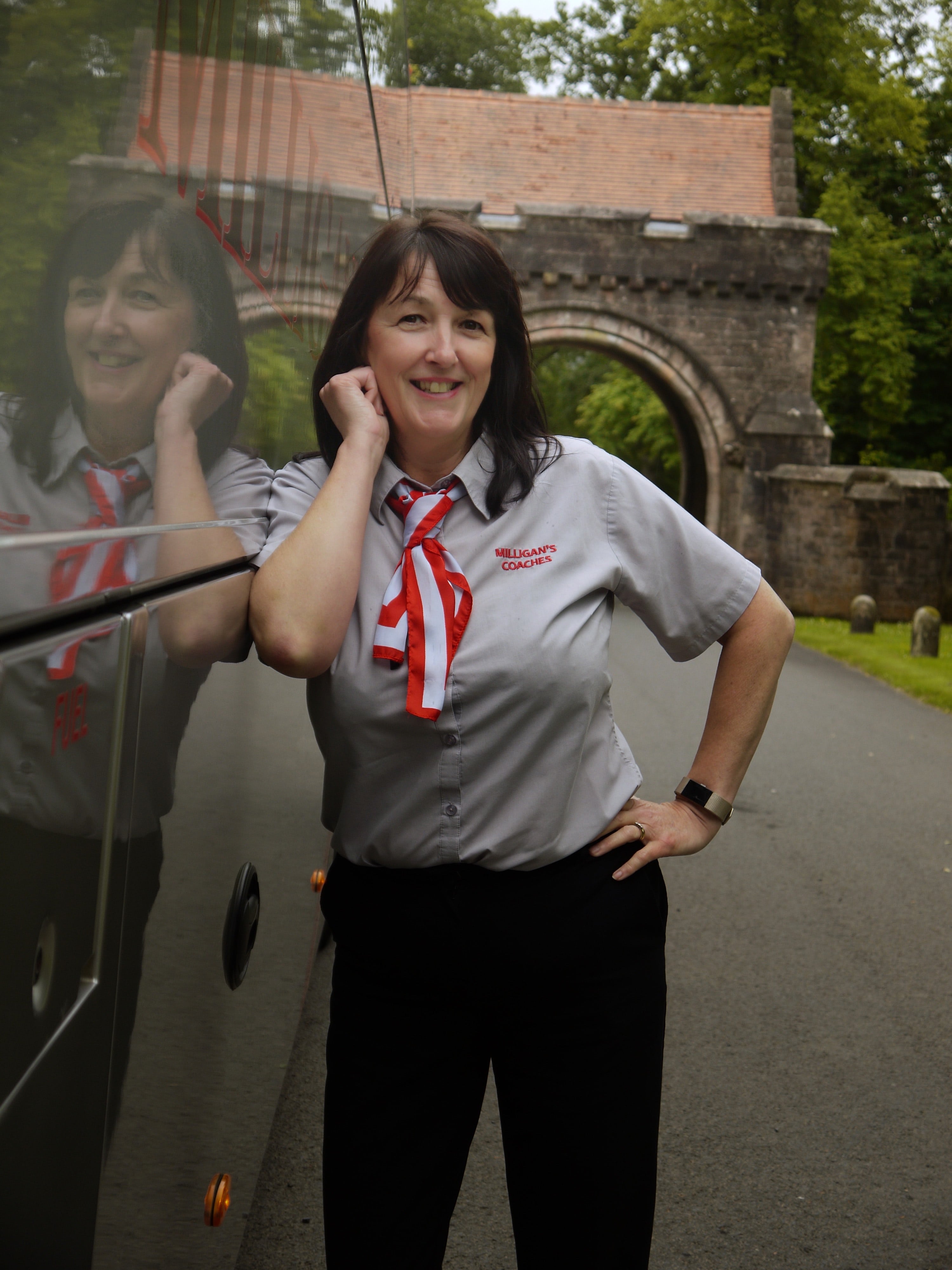
When Morag met Billy in 1989, she saw a business she could take part in and assist with. A student nurse at the time and later in banking, she grew disillusioned with shift work, and weighed up her options. “At Milligan’s, there was loads of stuff you could do. I learned accounts and wages manually. I’ve still got the old ledgers for the accounts and payroll – I kept them before we computerised everything.”
The business had fallen to Billy after his father’s health began to fail. He was 24 years old at the time and was part of the last groups to pass through mechanic college Motec at Livingston. He quickly had to learn the workings of the rest of the business, too. “It was a sharp shock to him at 24,” Morag says. “He had to pick up things he had been able to ignore before.”
From there, it was difficult for Morag not to become involved. “Even when I was in nursing, you still used to come out and clean the coaches. You always had something to do.”
The company comprised two large coaches and a minibus at the time. Deregulation resulted in the acquisition of two service runs between Cumnock, Ayr and Kilmarnock, and with it a modest fleet expansion. That brought in good money until competition from a larger operator made bus operation unfeasible by 1994. School contract work supplanted it as the bread and butter, alongside day trips. Every year the company would run a coach holiday to destinations such as Bournemouth or Blackpool.
School contracts allowed the company to grow steadily until it hit a peak of 20 coaches during the Mauchline primary school refurbishment. The first new coach, A Bedford YLQ Plaxton Supreme, arrived in 1977. But Morag recalls plenty of ups and downs during that time and does not shy away from the tears shed when the going got tough.
“Billy’s got a good business head. He’s known over the years how to work it and keep it going,” she says. “But it has been at the stage where we’ve been at rock bottom. You can never get too comfortable. When you’ve been there, you’re always aware you could go back.
“You don’t squander money; you like to hold on to what you’ve got because, one day, it could come crumbling down. The coach industry can be a greedy beast. In a bad month, it can swallow up so much.”
Recently, that diligence paid off. With finances managed carefully, Milligan’s was able to hand back money it had borrowed from the Bounce Back Loan Scheme when interest rates began to rise. “We are lucky that we are in the position that we didn’t need it,” Morag says, “but it has taken us 75 years to get to that position.”
Changing structure at Milligan’s
Pre-COVID, Milligan’s Coach Travel had been split evenly between private hire and tour work, and school contracts. Seating conversions for coaches is additional work that helps the business during quiet times. The business was fortunate that, after COVID-19 hit, another school decant pushed its school contract requirement up to 10 coaches, giving the business work for the five tour coaches that otherwise had no duties outside of the summer season.
“We knew that the tourism industry wasn’t coming back. We had the odd private hire, but social distancing meant we didn’t make money on them. We ran them to keep our name out there during the summer, and to give drivers work.”
Now, the momentum for tour work is returning after a poor year in 2022. The business is adding second coaches and additional dates, and is expecting a new Scania Touring to arrive in September. The fact that the company’s fleet is fully Euro VI means there has been interest from Glasgow for work, and Morag doesn’t have the logistical headache of allocating specific coaches to go into emission control zones. As for future technologies – that’s just another challenge among many. “Over the years there’s always been something,” Morag says. “It’s called modern times and moving on. Probably every industry is the same, we just don’t hear about it. Remember when every coach needed a seatbelt? Then it was digital tachographs? You’ve always had to meet some criteria. It’s currently PSVAR. This is just the next.”
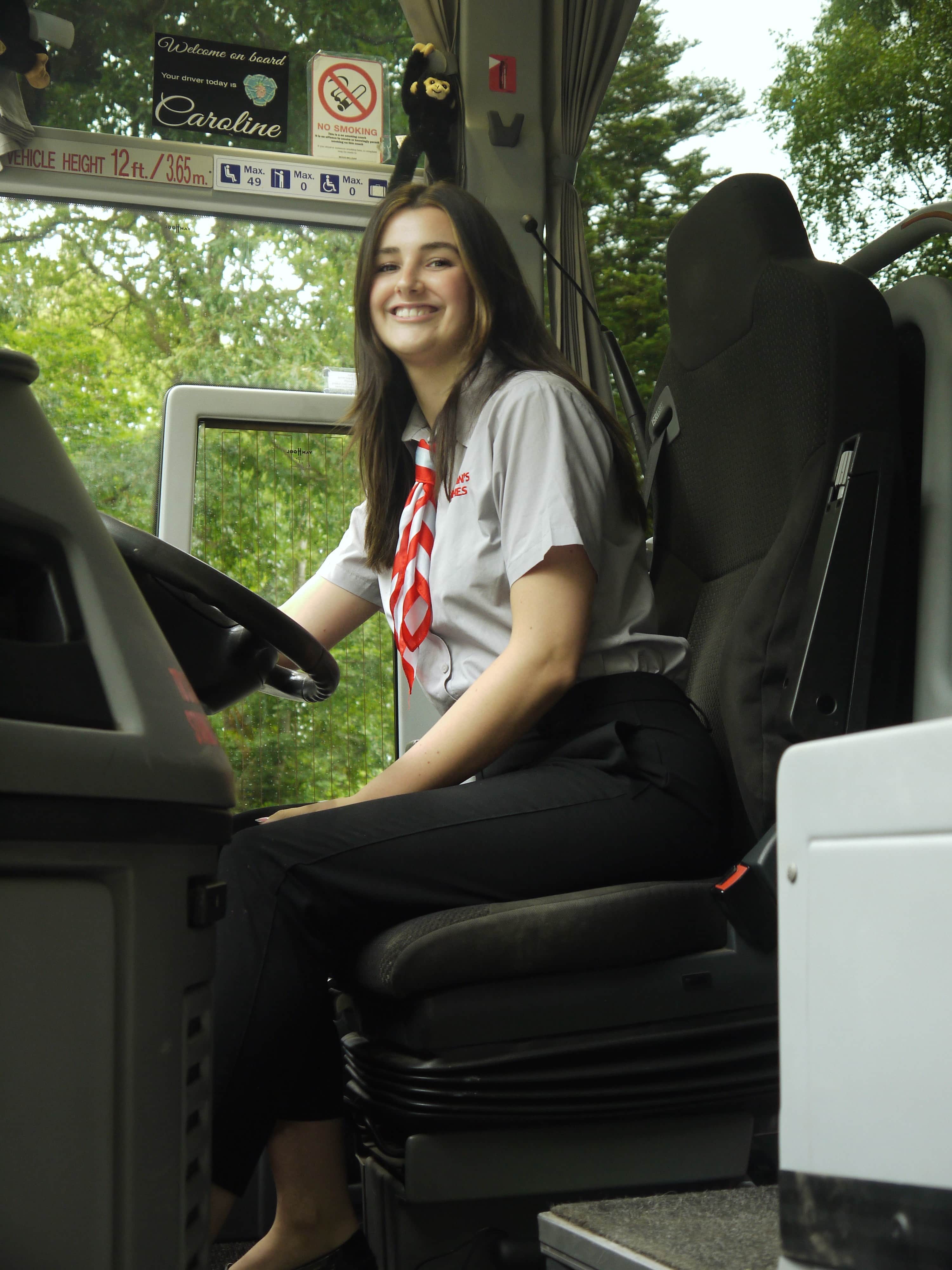
Onto the future
Morag admits that she and Billy have talked often about retirement and that there have been plans to sell up. “Billy always said he wouldn’t become like his dad,” she says. “Working until he dropped. His dad worked until he was 76, and he said ‘that’s not going to be me’. Which means I can see it being him.”
The plan has been complicated by Lynsey’s conviction to continue the family legacy.
Lynsey currently works at the company as Transport Manager, coach driver and technical assistant. She joined after studying Business at the University of Glasgow and economics and finance at Strathclyde Business School, and does not shy away from the reality of leading Milligan’s into what is, many predict, an uncertain future for the rural family coach operator.
Before then, Morag had done her best to dissuade her – even though Lynsey had already taken charge of the company’s social media accounts and a new website. “I wanted to join, but there had been arguments,” Lynsey says. “Dad had encouraged me to do what I want. Mum, like Betty, said I was meant for bigger things. That it was no life. That there was more money working a 9-5 Monday-to-Friday job. But I knew that this was what I wanted to do.”
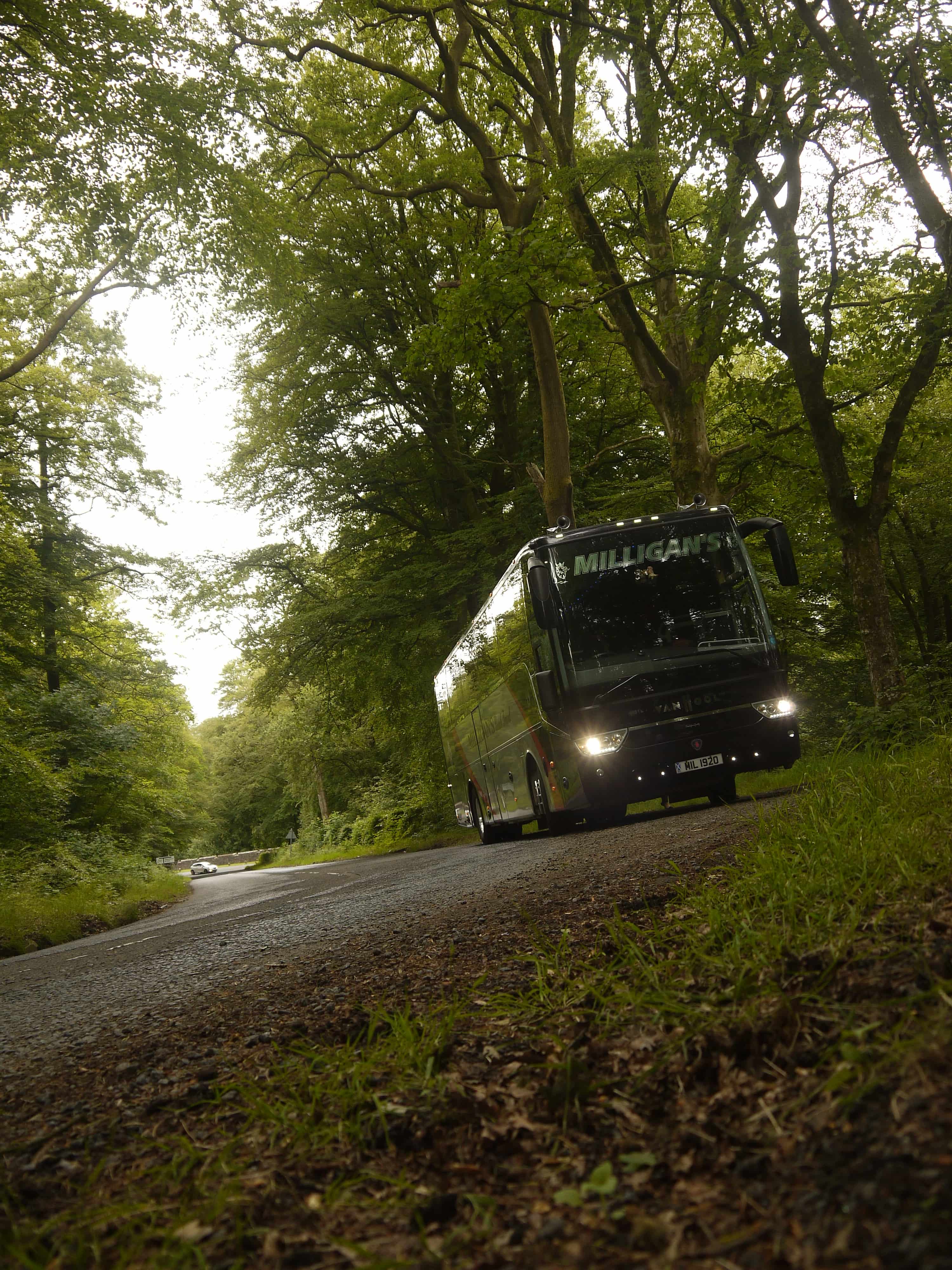
Lynsey received her PCV licence when she was in her third year of university in 2019. Just as she went to join the company, COVID-19 struck, and the work dried up. “There was no tourism industry, so I stayed working at Tesco until we received a decant contract in October, which finally gave me a job.”
In July 2021, Lynsey went full-time after receiving her Transport Manager Certificate of Professional Competence. She also spends time in the garage, began learning accounts and wages during the pandemic, and looks after bookings. Thanks to her decision to build a new website with online bookings, digitally driven revenue was a big help during the COVID-19 period.
Lynsey is confident that she sees herself running the company someday, but that there’s still time needed to build up confidence. “I have only been in the business full-time for a year,” she points out. “I feel like a COVID baby – I never got the full effects of how the business works. This year is the first where I’ve seen it in full swing.”
Her goal would be to maintain the business on the course charted by her parents, grandparents, and great grandfather. “I think it’s a healthy level,” she says. “I’d love to maintain what everybody has already made. I’d worry about losing touch if it grew much larger.
“It’s been the biggest journey. The most rollercoaster journey ever. And I’ve only seen the good of it my whole life. Right now, it’s at a manageable level where the business is small but with a great quality of work. The priority is to show that I can do everything my parents can do.”













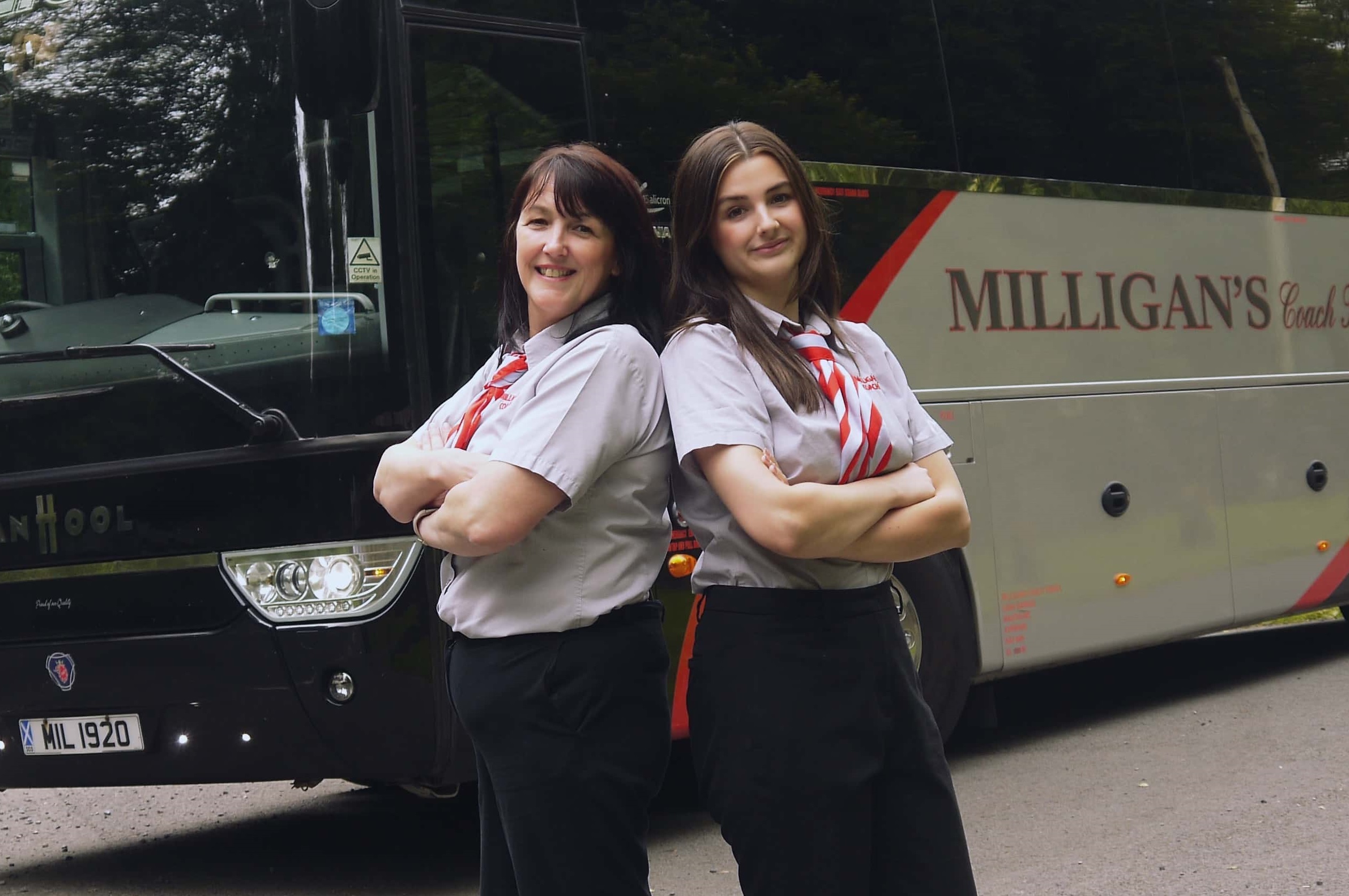
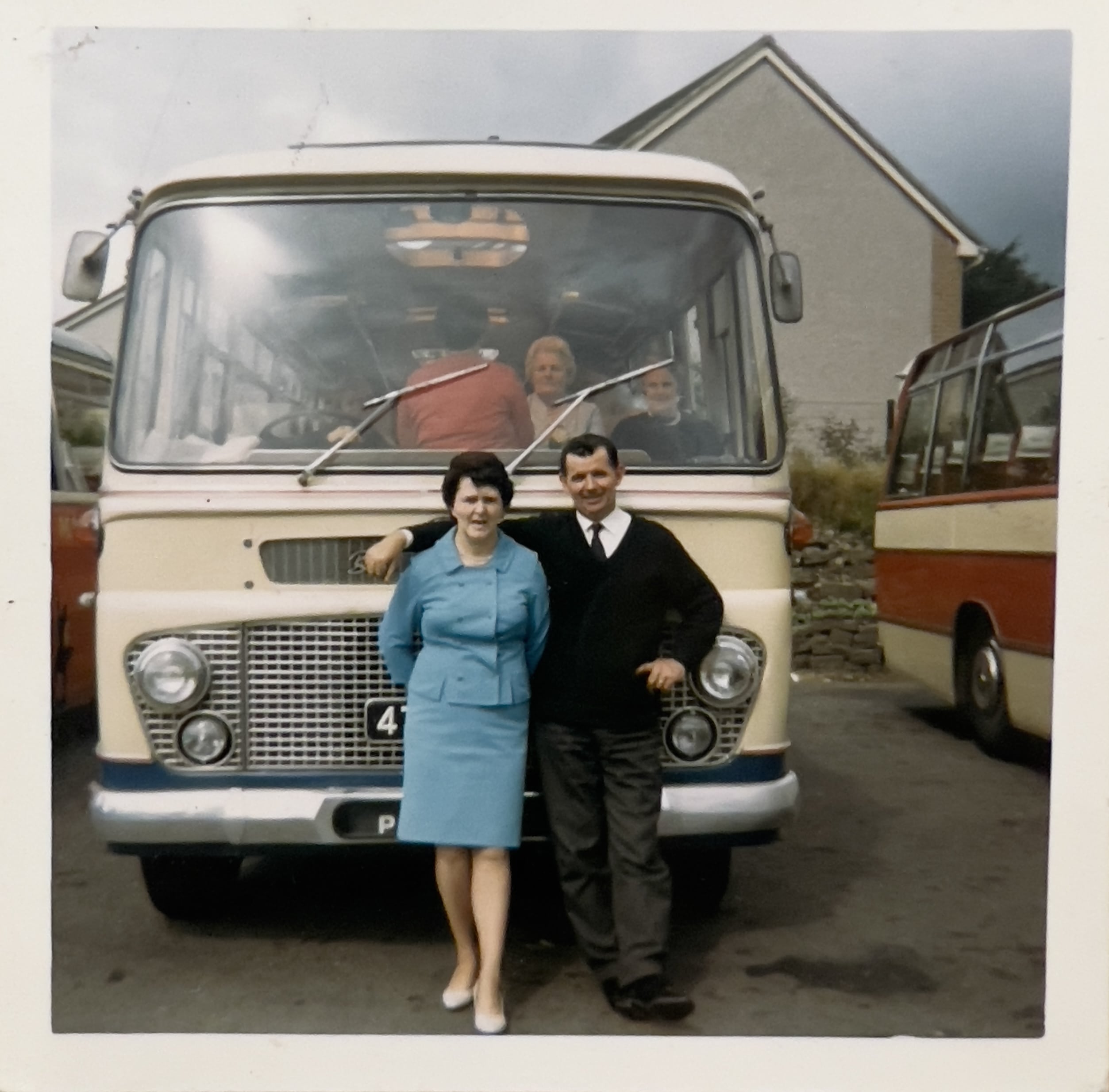 A family legacy
A family legacy